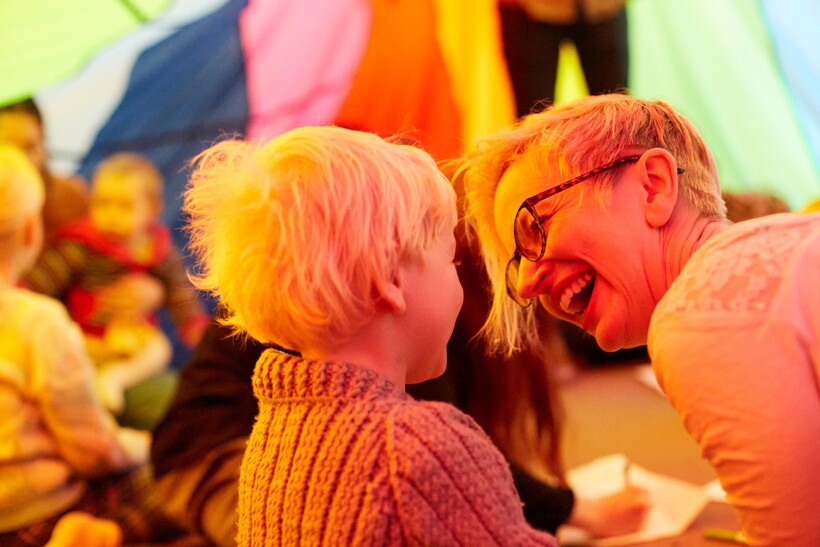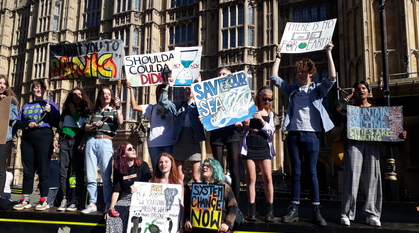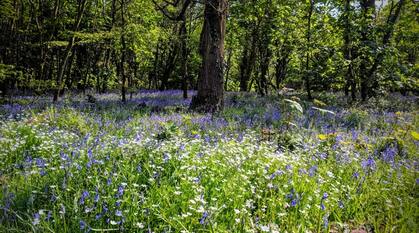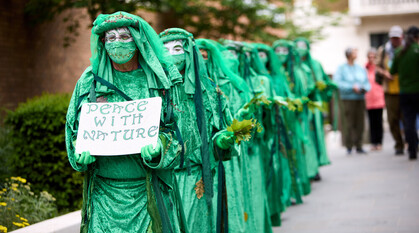11 things growing meetings are doing
From large to small, rural to urban, Cato Pedder shares insights from growing meetings across Britain.

As Quakers explore how to build vibrant, Spirit-led communities, it's useful to learn from meetings that are already experiencing significant growth.
Between 2018 and 2024, over 100 meetings across Britain saw increases in attendance. Here are 11 examples of things these growing meetings do, along with links to resources to explore ideas further:
1. Maintain an active and welcoming children's programme
Meetings with consistent, welcoming children's groups attract families and create a virtuous circle of growth. Regular children's meetings and family-friendly activities are crucial. These do not have to be weekly.
Forest Hill Meeting in southeast London introduced a monthly breakfast meeting, and families who can't commit to coming every Sunday make a real effort to come to that meeting. So at least once a month, there are lots of children at meeting.
Watch a video: 'Making a welcome box'
Read more about how Clevedon Quakers used the new Welcome Box resource
2. Create a strong, friendly welcome for newcomers
Personal greetings at the door, offering leaflets, remembering names, follow-up emails, and warmly introducing new people to others, whilst avoiding swamping them with attention, all help build belonging and encourage return visits.
Redland Meeting in Bristol makes everyone feel noticed and valued, with the entire meeting taking responsibility for welcoming visitors: "The importance of a sincere and warm welcome cannot be overstated… We are all responsible for saying hello!"
Download or order leaflets for newcomers
3. Build strong communication
Gentle, timely follow-ups (email or in-person) build a sense of belonging. Keeping everyone informed and involved without overwhelming them is key. Signal/WhatsApp/Telegram groups, websites, Facebook groups, and online notices help maintain connection between meetings and communicate about events.
Portobello and Musselburgh Meeting maintain WhatsApp threads, the two core ones are Quaker Worship and Quaker Chat.
4. Offer regular social and community-building events
Shared meals, breakfast meetings, book groups, open gardens, gardening clubs, line-dancing, poetry events, informal chats after worship and other social events build community. Social witness work around peace, the climate and other areas also deepens connections.
Lancaster Meeting has a shared lunch every month, and a "hotchpotch" of social events, including poetry, line dancing, and a monthly outreach 'Supper and Silence' evening. There is a garden committee, and vigorous work around social action.
Read more from Reading Quakers who hold a regular winter ceilidh
5. Make meetings flexible and adaptable
Flexibility around meeting times (for example holding evening meetings, or not insisting on weekly meetings or meeting on Sunday only) and hybrid/blended options where possible make meetings accessible to a wider range of people. Supporting local worship groups, such as those at universities, strengthen the community.
Portobello and Musselburgh Meeting has three different meeting slots: second and fourth Sundays at 11am, an evening meeting on the first Sunday, and an evening meeting on the third Sunday in a different location, in Musselburgh. Alastair Cameron said: "More flexibility is going to give young people a chance to attend, for example, if they've been working late the night before."
Explore the resource: 'New expressions of Quaker community' (PDF)
6. Develop an accessible and visible online presence
Websites, Facebook pages, Instagram, and being part of Quaker directories allow people to find meetings easily. Online welcome and communication is vital, especially for geographically spread or cautious newcomers. Email outreach@quaker.org.uk if you would like support with this – new online sessions will be starting soon.
Mary Elliott of Lincoln Meeting said, "Online signposting is really important. We are very visible online, through our website, the Quaker Meetings Network and being registered with Discovering Quakers."
7. Be part of the local community
Using shared community buildings and offering spaces to other groups in your meeting house creates visibility and attracts new attenders through word-of-mouth.
Central Manchester Meeting House is a busy city-centre conference venue so they ensure there are Quaker leaflets and posters on display, and hold a Wednesday lunchtime meeting when lots of clients are in the building.
Watch the video: 'Engaging with families: linking with our localities'
8. Nurture ongoing spiritual learning and engagement
Offer discussion groups, meetings for learning, Becoming Friends courses, and post-meeting faith spaces to engage attenders more deeply and allow diverse voices to contribute.
Walthamstow Meeting holds a monthly discussion evening with speakers, online and in person.
Find resources to support spiritual nurture
9. Empower people to get involved without pressure
Inviting contributions gently and positively, without overwhelming newcomers with roles encourages sustainable involvement and avoids burnout. But it is also important to recognise that being of service helps new attenders to feel connected and committed to their Quaker community.
Colin Brown of Abergavenny Meeting in Wales said: "We do not have many rigid roles or obligations…business meetings are fairly brisk and focussed, whilst also collaborative and relaxed."
10. Foster a joyful, positive culture
Simple acts like good quality tea, coffee, and biscuits help create a friendly, relaxed atmosphere that makes people want to stay and chat.
Miranda Bird of Come-to-Good Meeting in Cornwall, said: "Our starting point is that people in meeting have to be enjoying themselves and happy with each other. That's the thing that makes it fun for others too. Having nice cafetières and a nice teapot and biscuits helps with that."
11. Emphasise positive community identity and celebrate successes
Conducting spiritual reviews, emphasising collective achievements, celebrating events like weddings or community projects, and speaking positively about involvement opportunities foster pride and strengthen bonds.
Bridget Dunbar of Disley Meeting in Cheshire, said: "We had a spiritual review in November 2023 and lots came out, including doing more to get to know one another not only in 'the things that are eternal' as Quakers say, but in the details of day-to-day life." The spiritual review yielded a three-part programme to help build the meeting.
Quakers in Britain provides local development workers, resources, events, activities and networks to support Quaker communities to thrive.


